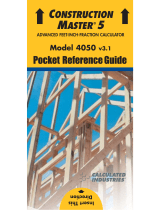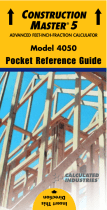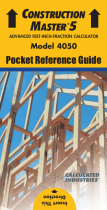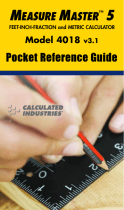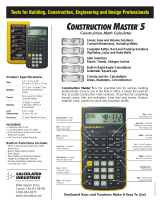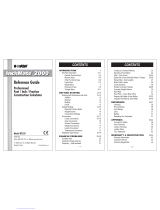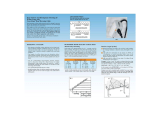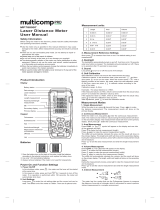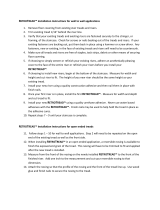Irregular Hip/Valley and Jack Rafters –
Descending, with
On-center Spacing Maintained
...............................................62
Irregular Hip/Valley and Jack Rafters –
Ascending, with
Jacks Mating at Hip/Valley
......................................................64
Rake-Wall –
No Base
.................................................................66
Rake-Wall –
With Base
..............................................................67
ROOFING MATERIALS ................................................................68
Roof Covering –
Entering Pitch, Length and Width
..................68
Roof Covering –
Entering Rise, Run (No Pitch) and Area
.........69
STAIR LAYOUT EXAMPLES ........................................................70
Stair Layout Definitions..............................................................70
Stairs –
Given Only Floor-to-Floor Rise
.....................................72
Stairs –
Given Only the Run
......................................................74
Stairs –
Given Rise and Run
.....................................................75
Stairs –
Given Rise and Run, Using “Riser Limited” Function
for Code Restrictions
..............................................................76
Baluster Spacing........................................................................77
STUDS..........................................................................................78
BASIC D:M:S AND TRIGONOMETRY EXAMPLES.....................78
Converting Degrees:Minutes:Seconds ......................................78
Time Calculations Using D:M:S.................................................78
TRIGONOMETRIC FUNCTIONS..................................................79
Converting Percent Grade to D:M:S..........................................80
Converting Tangent/Pitch to Angle.............................................80
Converting Roof Angle in Degrees to Pitch in Inches................80
Angle –
Rise and Hypotenuse Known
.......................................81
APPENDIX A –
DEFAULT SETTINGS
............................................82
APPENDIX B –
PREFERENCE SETTINGS
....................................83
How to Set Preferences.............................................................86
Accessing Preference Settings..................................................86
APPENDIX C –
CARE INSTRUCTIONS
.........................................89
APPENDIX D –
IMPORTANT NOTES FOR OWNERS OF
PREVIOUS CONSTRUCTION MASTERS
..................................90
APPENDIX E –
ACCURACY/ERRORS, AUTO SHUT-OFF,
BATTERIES, RESET
....................................................................91
ACCURACY/ERRORS..................................................................91
Error Codes................................................................................91
AUTO SHUT-OFF .........................................................................91
BATTERIES...................................................................................92
Replacing the Battery(ies)..........................................................92
Battery Replacement Instructions..............................................92




















